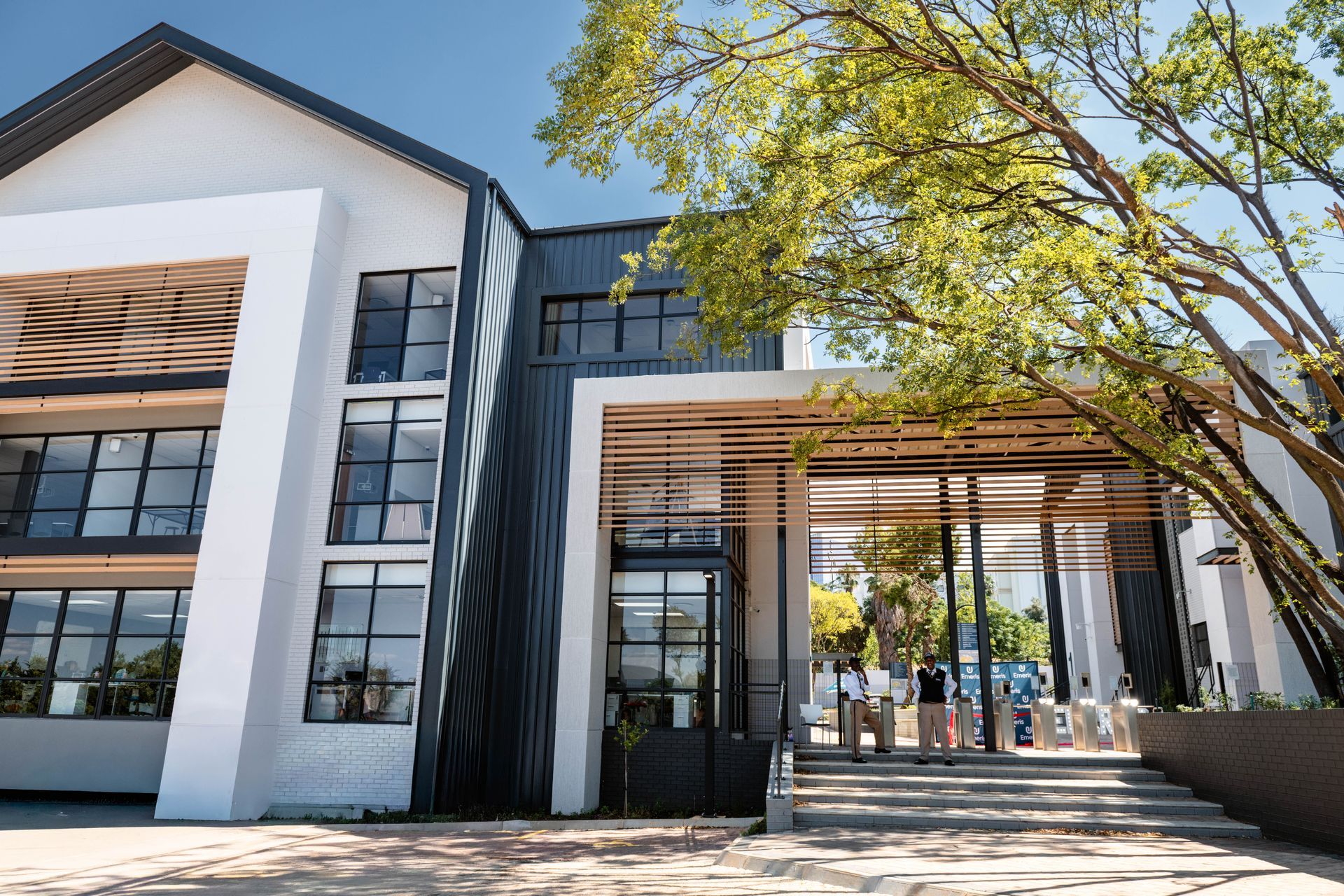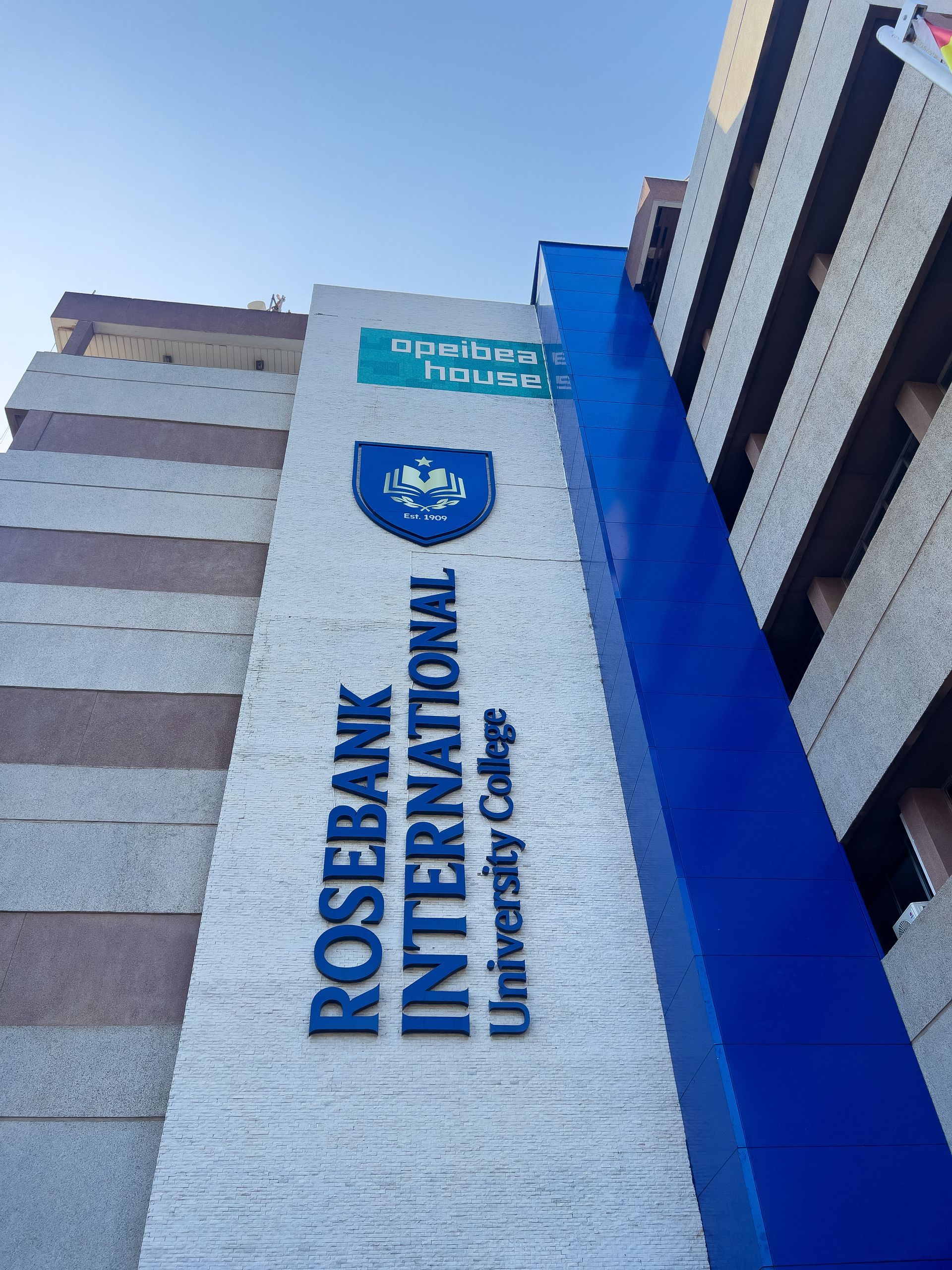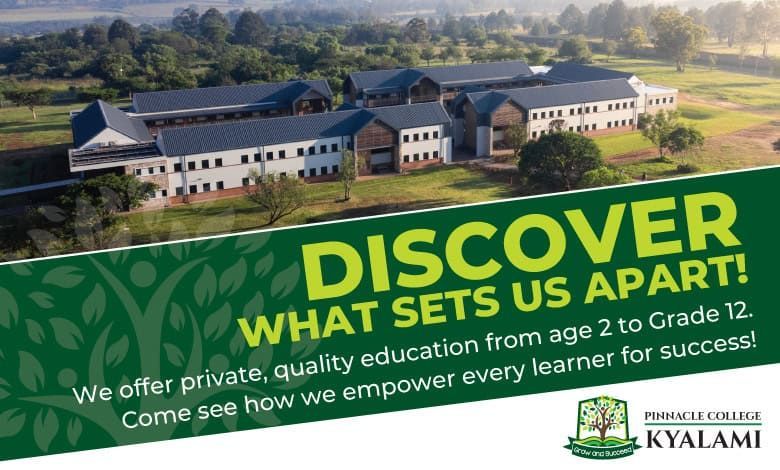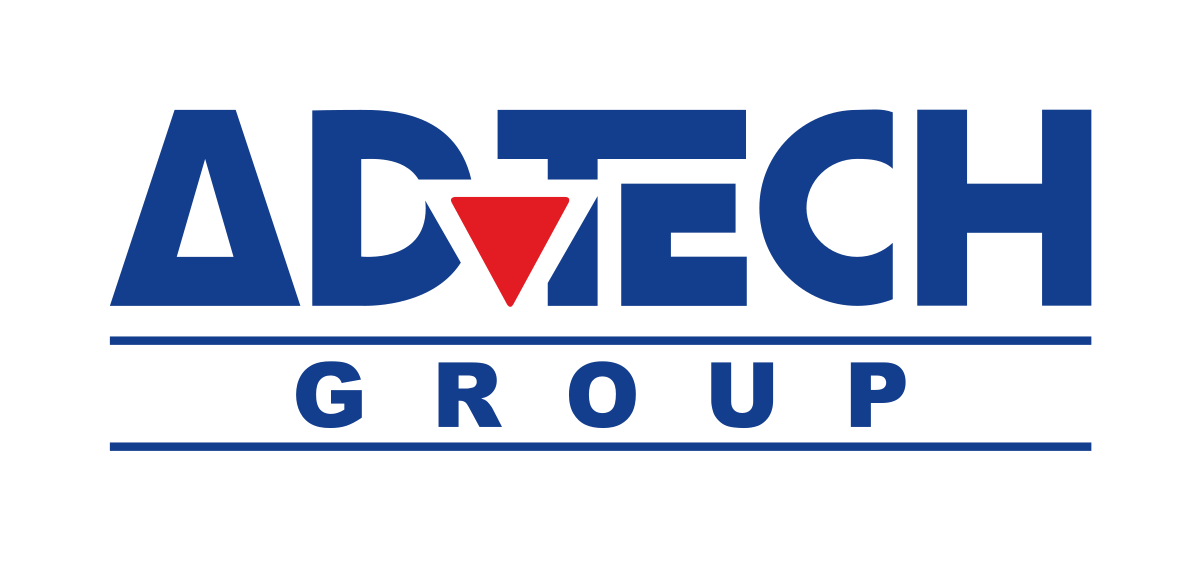LLB graduates from private institutions are qualified to enter professional legal practice
Article by Geoffrey Abrahams
Geoffrey Abrahams BA (UWC) BProc LLM (Unisa) is a lecturer at IIE Varsity College, Durban North Campus.
Independent Institute of Education (Pty) Ltd v The KwaZulu-Natal Law Society and Others (KZP) (unreported case no 9090/18, 22-2-2019) (Sibiya AJ)
In this significant judgment, the applicant was the Independent Institute of Education (IIE), which is registered in terms of s 54(1)(c) of the Higher Education Act 101 of 1997, as amended, as a private higher education institute since 2007. This entitled the IIE to offer tertiary qualifications, such as diplomas, certificates and degrees at graduate and postgraduate level, in accordance with its accreditation. In May 2017 the Council on Higher Education, the body responsible for accrediting programmes of higher education in the country, accredited the IIE to provide the LLB degree at its campuses. In doing so, the Accreditation Committee of the Higher Education Quality Committee of the Council on Higher Education found the IIE to be on par with the course it offered in every respect with the LLB degrees offered by public universities.
In October 2017 the IIE was registered to offer the LLB degree at the National Qualifications Framework level 8, by the South African Qualifications Authority, the statutory body responsible for qualification standards set by the Minister of Higher Education. One of the stated purposes of the qualification is to prepare students for a career in professional legal practice, including practice as an advocate, attorney or prosecutor.
The IIE duly offered the LLB degree at six of its campuses that are designated as Varsity Colleges in various provinces and at different locations, and in the 2018 academic year, the IIE registered an approximate 200 first-year students.
On 19 January 2018, the first respondent, the KwaZulu-Natal Law Society (KZNLS) in response to a query from one of the student’s parents, indicated that the LLB degree offered by the IIE did not meet the requirements for admission as an attorney in terms of s 2(1) of the Attorneys Act 53 of 1979 (the 1979 Act). In this regard, it should be noted that the 1979 Act has subsequently been repealed in its entirety by the Legal Practice Act 28 of 2014 (LPA), which came into effect on 1 November 2018 and
s 2(1) of the 1979 Act has been replaced by s 26(1) of the LPA.
The KZNLS’ legal stance was premised on two arguments. First, the 1979 Act provides that an LLB obtained from a ‘university’ qualifies one for articles of clerkship, a prerequisite for admission as an attorney, and neither the applicant nor its Varsity College brand is a university. Secondly, the KZNLS advanced the reason that as of November 2017 the Council on Higher Education had listed all the institutions with an accredited LLB programme and the IIE was not listed as such an institution. The latter argument was subsequently withdrawn by KZNLS and was no longer an issue.
When the matter came before Sibiya AJ on the opposed motion roll on 11 December 2018, the KwaZulu-Natal Division of the High Court in Pietermaritzburg had to determine whether s 26(1)(a) of the LPA infringed the applicant’s constitutional rights to –
- equality before the law in terms of s 9(1) of the Constitution;
- freedom of trade, profession and occupation in terms of s 22 of the Constitution;
- right to establish private education institutions in terms of s 29(3) of the Constitution; and
- importantly, if this was indeed so, whether such infringements were reasonable and justifiable in terms of s 36 of the Constitution, namely the limitation clause.
Prior to this hearing, the matter was first enrolled on the motion roll on 25 September 2018 before Koen J in the form of an application brought on an urgent basis to review the decision of the KZNLS to refuse to recognise the IIE’s LLB degree as being sufficient for entry into the legal profession. In addition, the applicant sought a declaratory order that its LLB degree was duly registered and was the equivalent to the LLB degree offered by accredited public universities. On that occasion, Koen J adjourned the application sine die and granted the IIE leave to amend the relief it claimed and to supplement its papers.
The IIE did so, and that resulted in the revised content of the papers and relief sought before Sibiya AJ, who in her judgment addressed the issues, which are succinctly summarised below.
The court firstly addressed the meaning of the term ‘university’ and it referred to the Higher Education Amendment Act 9 of 2016 (the Act) that made the distinction between a university established under the Act and any other higher education institution. The court found that, with reference to the Act, the term ‘university’ could not be read to include the applicant and the applicant was, therefore, excluded. Although this sustained the argument advanced by the KZNLS, it did not, by any means, end the inquiry.
The court then dealt with the matter of greater legal and indeed constitutional significance, namely, whether s 26(1) of the LPA infringed or limited the IIE’s applicants’ rights under ss 9, 22 and 29(3) of the Constitution.
In doing so, the court dealt with the content of s 29(3) and found that the IIE, having shown that it met the criteria set out in s 29(3) and also those in ch 7 of the Higher Education Act, therefore, enjoyed the same rights to offer the accredited four-year LLB as public universities have and its exclusion from s 26 (1)(a) of the LPA unlawfully and unconstitutionally limited this right.
In addressing the cardinal importance of the right to equality before the law under s 9(1), the court ruled that the KZNLS had unfairly discriminated against the IIE and that the IIE and its students have the right to equal protection and benefit of the law. The court’s reasoning was that the minimum standards set for admission as an attorney was an LLB degree from a university. It held further that there is only one LLB degree that is accredited by the South African Qualifications Authority and it is the same for public universities, as well as for the IIE, a private tertiary institution. The court considered the confirmation of the Council on Higher Education that the applicant’s four-year LLB degree is in every respect on par with those from public universities. Furthermore, the court found there was no rational link between the impugned provision and the legislative purpose as reflected in all the relevant statutes. This meant that the differentiation that constituted the KZNLS’ argument for non-recognition, limited the IIE’s rights under s 9(1) of the Constitution, without valid justification.
In addressing the ambit of s 22 of the Constitution, the High Court referred to correspondence between the Minister of Higher Education and the Minister of Justice where the former stated at para 41 that: ‘The problem that section 26(1)(a) [of the LPA] creates is that LLB graduates who have obtained their qualification from registered private higher education institutions may not be given an opportunity to practice.’
The court’s statement at para 46 relating to the effect of s 26(1)(a) of the LPA is of singular importance, that is, ‘of limiting the entry into the profession to the LLB degree obtained from a university, when there is no material distinction between what is offered by a university and that offered by the applicant, cannot be said to be anything but arbitrary.’ The court concluded that s 26(1)(a) of the LPA limited the rights of the applicant and its LLB students.
The further inquiry examined whether the limitation of the rights under ss 9, 22 and 29(3) of the Constitution were justifiable under s 36, as the court had found that the distinction created by s 26(1)(a) of the LPA between LLB degrees in public universities and those from the IIE created an unnecessary and unjustifiable limitation to entry into the profession and consequently found the provisions of s 26(1)(a) to be unconstitutional and invalid.
The court order further stipulated that students who graduate with an LLB degree offered by the IIE after 1 January 2018, are as qualified to enter the practice of the legal profession as the graduates from public universities in South Africa.
As Sibiya AJ’s judgment involved the invalidation of a provision in parliamentary legislation it is required that the Constitutional Court must in terms of s 167(5) ratify or confirm the invalidation.
ADvTECH Updates

With all the start-of-the-year activities, ceremonies and celebrations now out of the way, the serious business of the Matric Class of 2026’s journey towards their final exams has now arrived. This year can feel overwhelming, not just for students, but for parents too, who often feel as though they are writing matric alongside their children. “Whether students are aiming for university entrance, considering a gap year, or simply focused on finishing strong, the culmination of twelve years of education comes down to the NSC results for which they will sit later this year,” says Darren Purdon, Academic Project Manager: Academic Centre of Excellence at ADvTECH and The IIE. “Matric is a year filled with excitement and responsibility. Many students take on leadership roles, plan their matric farewells, and prepare for valediction services. These events are memorable, but they also add to the pressure of maintaining strong academic performance. Mental health becomes a crucial factor, as students juggle multiple responsibilities and expectations,” he says. But, to start the year on the right foot, it is imperative for students to set clear academic goals. “APS scores are vital for university entrance, so students must understand the requirements and track their progress consistently. Parents can support this by creating a tracking sheet and having regular discussions with their child about their marks. These conversations should be constructive, offering motivation and support where needed,” says Purdon. Planning is essential to avoid burnout, he adds. “A monthly planner that includes all assessments and portfolio deadlines helps students stay organised. Establishing a study routine early in the year, with consistent daily habits, is far more effective than last-minute cramming. Using a wall planner or digital app to mark exam dates and assignment deadlines can make a big difference.” Portfolio pieces play a significant role in the final NSC mark. Students should aim to submit their best work and take advantage of opportunities to revise and resubmit tasks. Engaging with teachers for feedback is key. However, students must be cautious of plagiarism. While tools like ChatGPT and Microsoft Copilot are excellent for research, they should not be used to generate final submissions. Plagiarised work will be discarded and penalised, which can negatively impact results. “Many subjects allow students to select their highest-scoring portfolio pieces. This flexibility can be a strategic advantage if assessments are approached with preparation and effort. Starting assignments early allows time for reflection and improvement, leading to better outcomes. Students should reach out to teachers for guidance and use feedback to refine their work,” Purdon says. Very importantly, mental wellbeing must be prioritised throughout the year. Encourage short, focused study blocks followed by breaks, and promote healthy habits like regular exercise, balanced nutrition, and sufficient sleep. Stress management techniques such as journaling, breathing exercises, or short walks can help students stay grounded. Pressure is normal, the key is learning to manage it effectively. Thought Life Orientation is an after-thought? Think again. “Life Orientation is often overlooked, yet it can influence university residence applications. It’s a task-driven subject, making it easier to excel with proper planning and effort. Aim for a distinction, it’s achievable,” says Purdon. Active learning strategies such as summarising notes, teaching concepts aloud, using flashcards, and practising with past papers are highly effective. “Previous NSC papers are invaluable for understanding question formats and expectations. These resources are freely available online and should be printed and organised in subject-specific folders for easy access. “After each test, students should reflect on their performance: What went well? What needs improvement? This feedback loop is essential for growth. Taking notes in class and creating study summaries from day one will make exam preparation easier. Avoid studying late at night before assessments, and plan ahead to reduce anxiety and improve retention.” Reviewing Grade 11 content in key subjects like Mathematics, Physical Sciences, and Languages is also important. Study groups and peer tutoring can reinforce understanding, and regular check-ins with teachers or mentors can help identify and address challenges early. Focus on now, but also strategise the future. While the Matric year brings countless demands on your time and energy, planning your post-Matric path is equally crucial - especially if you plan to pursue further studies, Purdon says. “Start exploring your options right from the beginning of the year by thoroughly investigating all available pathways. Attend Open Days at as many public and private universities as possible to gain firsthand insight into campuses, programmes, and facilities. By acting proactively and keeping an open mind to the full range of possibilities, you'll reduce stress, make more informed decisions, and position yourself for a smoother, more successful transition into higher education.” This final year of school is not just about academics, it’s about balance, planning, and making the most of every opportunity. With the right support and mindset, students can thrive and finish strong, while hopefully reducing stress and anxiety, says Purdon. “Above all, students should remember to enjoy their final year of school. It’s a year filled with milestones and celebrations, and it passes quickly. Embrace the journey, plan wisely, and make the most of every moment.”

Emeris Sandton officially opened its doors on Wednesday, 3 February in what has come to be known as the richest square mile in Africa, bringing a state-of-the-art mega campus to the heart of Johannesburg. The R420 million, 47,000-square-metre campus represents one of the largest private investments in tertiary education in Gauteng, signalling a strong vote of confidence in the future of South African talent development. This landmark development marks the consolidation of The Independent Institute of Education’s Varsity College Sandton and IIE Vega School Bordeaux under one roof, now operating as Emeris and The Vega School at Emeris Sandton. With the opening of this new campus, Emeris now operates ten contact campuses and one online centre across South Africa’s major metropolitan areas. Emeris educated approximately 30,000 students in 2025.

Rosebank International University College (RIUC), the groundbreaking institution launched last year by Africa’s leading private education provider, the ADvTECH Group, today proudly welcomed its inaugural cohort of students. Hundreds of exceptional first-time students, carefully selected from an overwhelming pool of more than one thousand highly competitive applications, have now officially commenced their transformative academic journey at RIUC . This select cohort now embarks on an unparalleled opportunity – one that will equip them with the advanced skills, cutting-edge knowledge, and innovative mindset essential to meet the evolving demands of the global workforce in the Fourth Industrial Revolution and beyond. Dr Linda Meyer, President of Rosebank International University College, and MD at The IIE’s Rosebank College and Waterfall School of Business (WSB), said: “Today marks an historic step as we welcome our pioneering inaugural cohort.” “Backed by ADvTECH’s pan-African vision, our accreditations, global partnerships, and GETFund support, RIUC is delivering inclusive, innovative education that prepares students for success in the Fourth Industrial Revolution and beyond, while rooting excellence in African leadership.” “As they step onto the modern campus in Accra for the start of the 2026 academic year, these pioneering students are not only beginning their higher education, but also contributing to a significant milestone in Ghana’s tertiary landscape.” “They are positioned to become future leaders, innovators, and global professionals who will drive meaningful progress both locally and internationally,” she added. RIUC offers accredited programmes across its faculties, including high-demand qualifications such as: Bachelor of Computer and Information Sciences Bachelor of Commerce in Supply Chain Management Bachelor of Hospitality Management Bachelor of Computer and Information Sciences in Application Development Bachelor of Information Technology in Business Systems Bachelor of Commerce in Digital Retail Entrepreneurship RIUC is truly positioned as a hub for global learning, boasting partnerships with: Ghana Tertiary Education Commission (GTEC) Capsicum Culinary Studio (endorsing culinary programs with global industry ties) Association of African Universities Golden Key International Honour Society (global network for high-achieving scholars) ADvTECH and Rosebank College South Africa “Our new students can look forward to international exchange programmes, immersive study abroad opportunities, and access to globally recognized qualifications,” Dr Meyer says. With limited remaining space, prospective students for 2026 and beyond are encouraged to register immediately—online at www.riuc.edu.gh/application—registration or by visiting the campus.

Pinnacle College Kyalami is a school intentionally designed for their community, one in which adaptability, digital fluency and human skills matter as much as academic knowledge. Its educational model blends strong academic foundations with innovation, personalisation and holistic development to prepare learners for futures that are still unfolding. A defining feature of the school is the purposeful integration of technology into everyday learning . Classrooms are equipped with modern digital tools that support interactive, blended and inquiry-based learning. From Grade 0, students are introduced to coding, robotics and computational thinking , helping them develop problem-solving skills, logical reasoning and creative confidence with technology, not as an add-on, but as part of the learning culture. In Grades 4 to 6, mathematics is supported by ADvLEARN , an AI-enhanced approach to learning that enables teachers to track learner progress with greater precision and tailor targeted support or extension to individual needs. This is further strengthened by the school’s Individual Education Plan (IEP) framework, ensuring that each learner’s academic, emotional and developmental needs are understood and supported in a structured, intentional way. Pinnacle College Kyalami also offers a boarding environment for up to 100 learners , providing a secure, nurturing and structured setting that extends learning beyond the classroom. Boarding supports independence, leadership and social development, while offering families a balanced blend of care, routine and opportunity. The campus itself is designed as a “playground for the future” , a space where curiosity is encouraged, collaboration is natural and learning is active. Through project-based work, interdisciplinary thinking and experiential opportunities, learners are supported to engage deeply, think critically and apply knowledge meaningfully. Together, these elements create a learning environment that is not only academically sound, but future-focused by design, developing learners who are confident, capable, adaptable and ready to thrive in a world of constant change. Pinnacle Colleges, a member of the ADvTECH Schools Division, is a leading provider of future-focused education from early learning through to high school. Guided by our promise of Focus for Success, we combine academic excellence with innovation to provide structured pathways and modern learning environments. Our mission is to be the leading school brand for students pursuing tertiary education. By integrating data-informed teaching and technology-enhanced learning, we partner with parents to nurture confident, values-driven young people. With a legacy of excellence and a commitment to personal growth, Pinnacle Colleges prepares students to thrive in a rapidly changing world.

Choosing a public university or private higher education institution is one of the most important decisions prospective students will ever make, and also one of the hardest. While hundreds of thousands of students have already been accepted into further study for 2026, many others still have to make the call before the official start of the academic year. For these students, and senior high students who will have to consider their next steps in coming months and years, it is important to look beyond the brochure, an education expert says. “For some, choosing a higher education institution is about a taking the first independent step. For others, it’s about returning to study after years in the workplace, fitting lectures around meetings, assignments around family life, and ambition around reality,” says Nadia Landman, Head of Academic Quality Management Systems at ADvTECH’s Independent Institute of Education. Landman notes that while open days help, and polished brochures showcasing impressive campuses reassure, prospective students should attempt to gain a good understanding of what everyday life will actually look like once the semester starts. WHEN REALITY HITS AND STUDENT SUPPORT BECOMES CRUCIAL The real test of an institution rarely happens in week one. It happens a few weeks in, when deadlines stack up, confidence dips, work pressures increase, and life doesn’t politely pause for assignments. “Every institution talks about student support,” says Landman, “but what matters is whether that support is visible and accessible when students begin to struggle, not only when they’ve already failed.” For parents, that may mean asking how an institution identifies first-year students who are falling behind and what support is then made available. For adult learners, it means asking different but equally practical questions: Who do I contact when work deadlines clash with assessments? How accessible are lecturers outside of office hours? Are sessions recorded and made available should I miss a lecture? Institutions that understand student reality, across ages and stages, can explain clearly how they support learners before pressure becomes a crisis. WHO IS ACTUALLY DOING THE TEACHING? Behind every qualification is a lecturer, or a team of lecturers, responsible for turning content into learning. Qualifications and experience matter. But so does engagement, responsiveness, and an understanding of who is sitting on the other side of the desk or screen. “Adult learners bring professional experience, practical questions, and limited time. Parents want reassurance that lecturers are not only knowledgeable, but attentive and accountable. Strong institutions support their lecturers to teach well, and they take student feedback seriously,” says Landman. WORKING WITH REAL-WORLD REALITIES Few people still believe that a qualification alone guarantees a career. Parents worry about employability and adult students worry about relevance. Both are asking the same underlying question: Will this programme help me adapt to a changing world? “Curricula should not be static documents. They should evolve with industry, technology, and society. Institutions committed to quality review their programmes regularly, involve industry voices, provide work integrated learning opportunities, and assess students in ways that reflect real-world complexity, not just academic theory,” says Landman. “The aim is capability, not just completion.” WHY QUALITY AND GOVERNANCE MATTER Accreditation, assessment moderation, and academic integrity may sound bureaucratic, but they quietly protect the value of the qualification, and the effort invested in earning it. “Quality systems aren’t about red tape,” says Landman. “They exist to ensure fairness, credibility, and consistency, whether you’re studying full-time straight out of school or part-time while working.” Institutions that take quality seriously are open about how these systems work and why they matter. One of the clearest signals is the quality of service of an institution. How quickly are emails answered? Are queries met with empathy or deflection? Is communication clear, honest, and respectful of people’s time? Over time, these everyday interactions reveal whether an institution is designed around systems, or around students with real lives. “Higher education is not a transaction. It’s a commitment – of time, energy, and belief in a better future. Parents may not walk the journey for their children. Adult learners may not have the luxury of starting over if things go wrong. In both cases, the choice of institution matters deeply,” Landman says. “When looking at your options, understand that the strongest institutions are not defined by the loudest claims. They are defined by their willingness to answer difficult questions openly, thoughtfully, and without hesitation. And it is in asking those questions, early, calmly, and with intention, that both parents and adult learners move beyond the brochure and towards a decision that truly supports success.” Note: Recent developments in national higher education policy are helping to bring greater clarity for prospective South African students. The Department of Higher Education and Training’s policy on the recognition of institutional types is designed to ensure that different kinds of higher education institutions are clearly defined, appropriately regulated, and transparent about what they are established to offer. For students and families navigating an increasingly complex higher education landscape, this clarity will support more informed decision-making, helping them choose institutions that are aligned with their academic goals, life circumstances, and preferred mode of study, rather than relying on assumptions or labels. Policy implementation can only proceed once regulations are published.

JSE-listed ADvTECH is celebrating another year of outstanding academic performance following the release of the 2025 IEB Matric results. Three of the group’s schools – Crawford Sandton, Crawford La Lucia, and Glenwood House were ranked in the top ten co-educational schools. Across its 103 South African schools, ADvTECH’s pass and bachelor’s pass rates for 2025 were 99,7% and 94,0% respectively, with an impressive 3 371 distinctions at an average of 2,1 per student. 16 students from the ADvTECH group were recognised for Outstanding Performance by the IEB and a further 14 for Commendable Achievement. Significantly, while the national IEB average dropped year-on-year, ADvTECH’s pass rate increased by 0.3%. “Another strong set of results was achieved by our schools in 2025. We congratulate our students and teachers for their commitment and dedication”, commented Desiree Hugo, Academic Head: ADvTECH Schools. Hugo says that the group’s performance is the result of a number of initiatives introduced over the past few years. "ADvTECH has invested significantly in AI enhanced personalised learning and teacher training, ensuring that each student achieves their full potential. With a strong analytical focus on academic data, we have been able to ensure improvement for every student. We continue to strive towards consistently superior outcomes, leading the way with global best practice in education." Hugo added that a special note of congratulation was due to The Bridge Assisted Learning School in Lonehill, whose first Matric cohort achieved an impressive 100% pass rate. ADvTECH’s schools' brands include Crawford International, Pinnacle Colleges, Trinityhouse Schools, The Bridge Assisted Learning School, Evolve Online Schools and Abbotts Colleges.

ADvTECH Limited (Incorporated in the Republic of South Africa) (Registration number 1990/001119/06) Share code: ADH ISIN: ZAE000031035 (“ADvTECH” or “the Company”) DEALINGS IN SECURITIES BY A DIRECTOR OF A MAJOR SUBSIDIARY OF THE COMPANY AND AN ASSOCIATE OF SUCH DIRECTOR In compliance with the JSE Limited Listings Requirements the following information is disclosed in respect of dealings in ADvTECH securities by a Director of a Major Subsidiary of the Company and an associate of such a Director.

ADvTECH Limited (Incorporated in the Republic of South Africa) (Registration number 1990/001119/06) Share code: ADH ISIN: ZAE000031035 (“ADvTECH”) APPOINTMENT OF LEAD INDEPENDENT DIRECTOR (“LID”) In compliance with the JSE Listings Requirements, shareholders are advised of the following changes to the important function of a director. Harvey Christophers (“Harvey”), currently an independent non-executive director and member of the Audit and Risk, Investment and Remuneration Committees, has been appointment as Lead Independent Director with effect from 27 November 2025. Harvey will also being taking over the role of Chairperson of the Audit and Risk Committee, effective 1 January 2026, following the retirement of Keith Warburton as published on SENS, 8 April 2025. 28 November 2025 Johannesburg Sponsor: Bridge Capital Advisors Proprietary Limited



